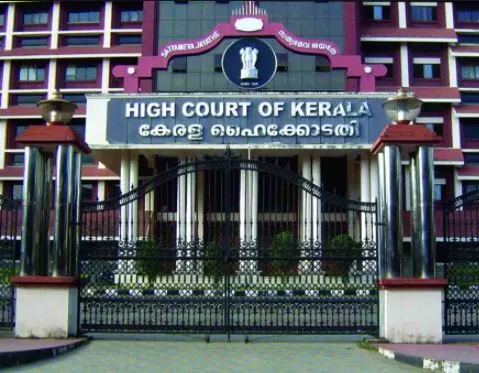The Kerala High Court dismissed an appeal filed against the order passed by the Employees Compensation Commissioner (Industrial Tribunal), Idukki who dismissed the claim on the ground that the deceased was a contractor and not a workman.
The appellants are the dependents of an electrician (deceased) by profession who died as a result of electrocution in the incident that occurred on 21.9.2006. Deceased used to provide light and sound for small programmes in and around Elappara. On 21.9.2006 the respondents engaged him for some programme of SNDP Yogam, Kozhikkanam Branch. Respondents were the office bearers of SNDP Yogam. While the deceased was throwing the cable for connecting the mike set, across the telephone post, the cable came in contact with the 11 KV electric line and as a result of which, he got electrocuted and succumbed to the injuries.
According to the appellants, the finding of the Commissioner that the deceased was not an employee coming under Section 2(1) (dd) of Employee’s Compensation Act, 1923 is not correct. He cannot be treated as a contractor. At the most, he can be considered as a petty contractor. Even then, the appellants are entitled to get compensation from the respondents. According to them, Act 8 of 1923 being a social security and welfare legislation, it should not be interpreted narrowly to deny compensation to the employee. Therefore, the appellants prayed for setting aside the impugned order passed by the Employees Compensation Commissioner and to allow the claim petition.
In order to substantiate the above argument the counsel for the appellants relied upon a decision of a Division Bench of this Court in Kunjoonjamma Daniel v. KSEB [2001 KHC 355]. In the above decision, the deceased was a repair worker of the Electricity Board. After his retirement, he was working as a petty contractor of the Electricity Board for definite items of work. While doing maintenance of an electric post, on 29.5.1991 the electric post was broken and he fell down and sustained fatal injuries. The Electricity Board denied the liability to pay compensation on the ground that Mathai Daniel was not their workman as defined under Section 2(1)(n) of the Employees Compensation Act. After interpreting the definition of workman under Section 2(1)(n), the Division Bench held that, “the above section shows that even if the employment is of casual nature, if the employment is for the purpose of employer’s trade or business, one is a workman as defined under the Act.”
The Bench observed in the current appeal that in the case of an independent contractor he is not controlled by an employer regarding the manner in which the work allotted to him is done. He also need not do the work personally and may get it done by employing others. In the instant case, the respondents for the purpose of conducting a public function, hired the mike set of deceased Babu who is an electrician. He used to hire a mike set for small functions like the present one. Accordingly for the function on 21.9.2006 he hired his mike set to the respondents. While he was throwing the cable for connecting mike set across the telephone post the cable came in contact with 11 KV electric line and as a result of which he got electrocuted. The mike set used in this case belonged to the deceased. Since it was only a hiring of mike set for the purpose of a programme, there was no necessity for the deceased to do his work personally. Instead, he could have done the same by engaging his own employees. His work of connecting the mike set is not controlled by the respondents. In the above circumstances, the Court held that the deceased was not an employee but an independent contractor. Therefore, the impugned order passed by the Commissioner is perfectly justified. The Bench not find any grounds to interfere with the impugned order.


